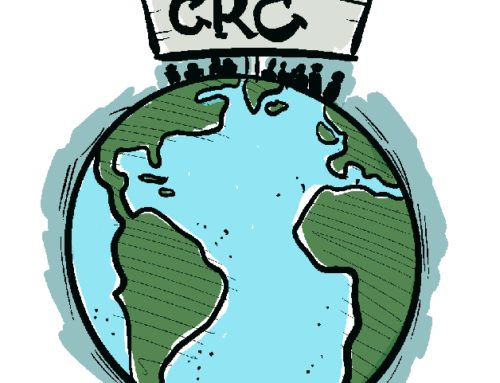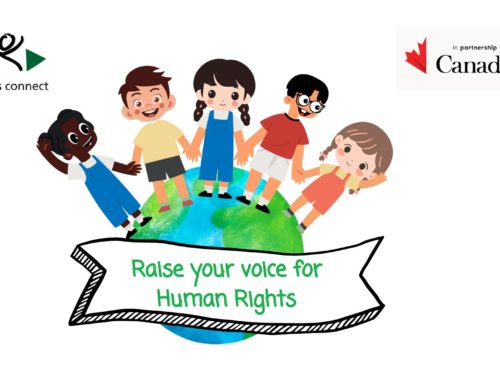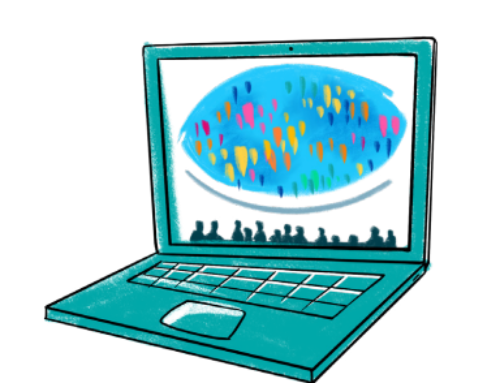On Wednesday 29th July, the Human Rights Committee published their new General Comment No. 37 on Article 21: Right to Peaceful Assembly considering some key asks by Child Rights Connect.
Empowering and ensuring children can effectively engage in peaceful assemblies
We welcome the inclusion in paragraph 25 of the General Comment (GC) of the wordings “facilitation” and “which may face particular challenges in participating in assemblies”, recognizing the positive obligation of States to facilitate the participation of individuals who are members of groups who are or have been subjected to discrimination and of those which may face particular challenges in participating in assembles, such as children. Indeed, and as repeatedly expressed by the children who informed our submission to the Human Rights Committee this past February, one of the main obstacles that children face is not being able to participate in assemblies in the first place.
Some reasons why children fail to engage in peaceful assemblies are because they are not aware of such opportunities (e.g. lack of accessible and child-friendly information), they are not taken seriously by adults and seen as incapable of participating and/or because they are not encouraged to do so (e.g. schools’ sanctions, not enough awareness on the importance for children to engage in these activities, etc.) In our submission and discussions with the Human Rights Committee, Child Rights Connect advocated that creating a safe and enabling environment for children to be able to engage in peaceful assemblies is key and we strongly encouraged the Human Rights Committee to include this among the positive obligations of States in the GC. We are very happy to see this ask was considered by the Human Rights Committee.
Taking into account the special needs of children participating in peaceful assemblies
We also appreciate, in paragraph 80 of GC, the addition of the need for training of law enforcement officials policing assemblies to sensitize officials to the specific needs of individuals or groups in situations of vulnerability, which can include children, when participating in peaceful assemblies. This wording was absent in the previous draft, even though the special needs of children engaged in peaceful assemblies are seldom considered by the authorities in their planning, decision-making & training.
Protests can involve a risk of violence. Because children are usually smaller in stature than adults and have less life experiences, they can face a greater risk of physical harm than adults and might be more vulnerable if the authorities resort to force or some participants or counter-demonstrators turn violent. In our submission, Child Rights Connect highlighted police and other law enforcement, as well as state and local authorities, should consistently consider the special needs of children in the full enjoyment of their freedom of peaceful assembly and that this should be explicitly mentioned in the GC, including the need to train law enforcement officials in children’s rights.
In February, Child Rights Connect made a submission to the Human Rights Committee, directly informed by children from all over the world. Indeed, with an increasing number of children taking part in peaceful protests around the world, most notably in strikes against climate change, Child Rights Connect sought to ensure that children could share with the UN what the right to peaceful assembly means to them and what barriers they face in exercising this right. Through a survey, Child Rights Connect heard from 91 children, aged 10-18 years old, from 15 different countries, across five regions (East Asia and Pacific, Latin America and Caribbean, Sub-Saharan Africa, Europe, and Central Asia, Middle East and North Africa). For more information, you can read our previous news piece here!
In March, Child Rights Connect also provided oral inputs to the draft General Comment in a discussion the Human Rights Committee held with civil society organizations.
Freedom of peaceful assembly is a foundation of any democratic society and serves as a key mechanism empowering marginalized communities and individuals. For children, this is particularly important as they lack full legal capacity, political power, they are economically weak and constitute one of the most vulnerable groups in society. Unlike adults, children cannot vote and are not represented in traditional State structures. Hence, children are at a greater need for opportunities to further their rights and interests.
You can find further information on the discussions and drafting process here.










Leave A Comment